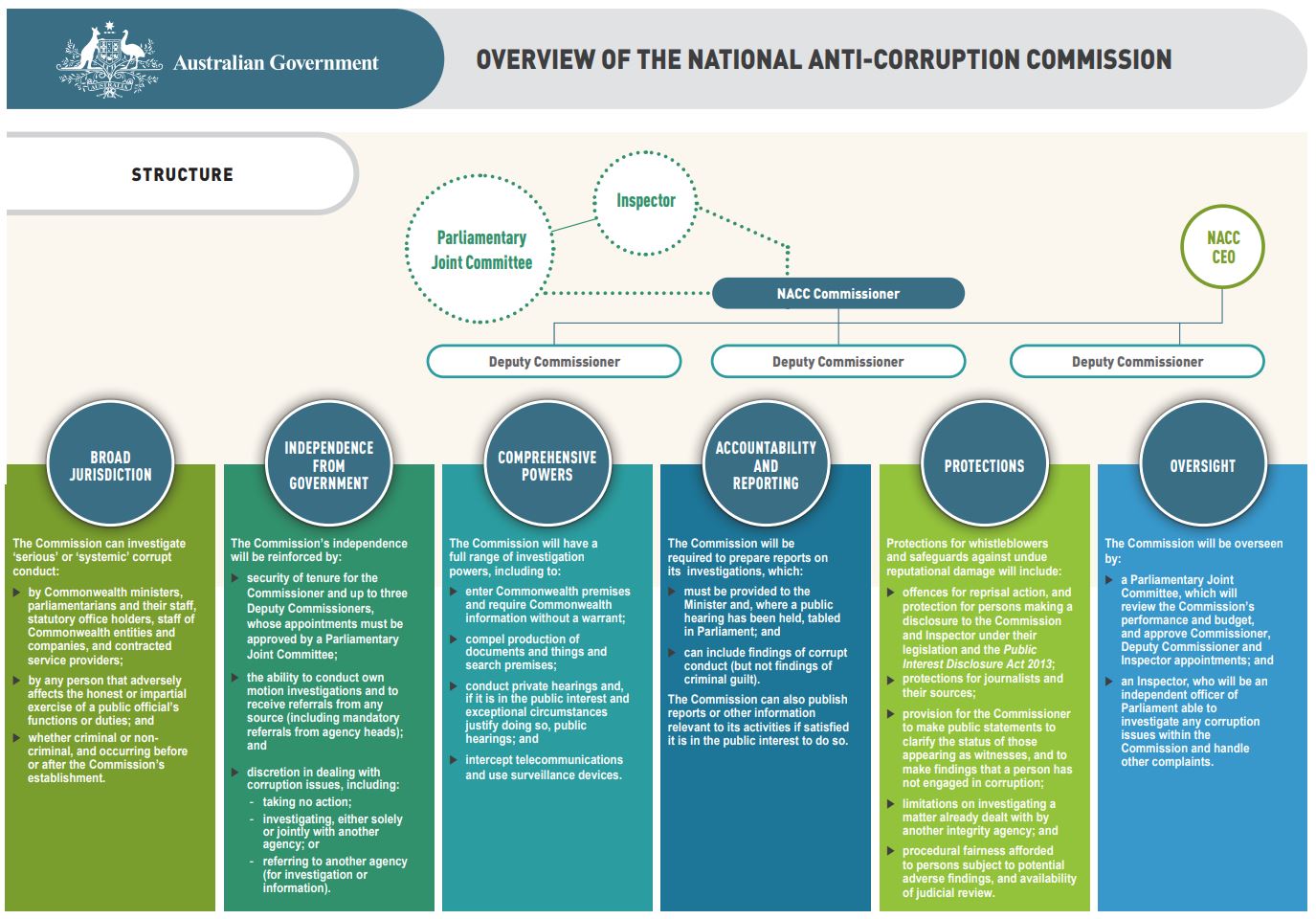During the 2022 Federal Election, we committed to introducing a National Anti-Corruption Commission (NACC).
This is important to me because I think we need to return trust in our parliament, but it was also an issue that was important to our community too. I spoke to so many people in our local area who told me they wanted to see integrity in our parliament.
On 30 November 2022, the National Anti-Corruption Commission Bill 2022 passed both houses. This means by mid-next year, Australians will have a powerful, independent and transparent Commission, with the powers to investigate serious or system corruption across the entire federal public sector.
The Commission will have the staff, capabilities, and capacity to triage referrals and allegations it receives, conduct timely investigations, and undertake corruption prevention and education activities.
The recruitment for a National Anti-Corruption Commissioner and other senior staff is already under way.
There are seven principles that underlie the proposed NACC design:
- Broad jurisdiction: the NACC will have the power to investigate serious or systemic corrupt conduct across the Commonwealth public sector by ministers, public servants, contractors, statutory office holders, government agencies, parliamentarians, and staff of politicians and any person whose conduct adversely affects the honest or impartial exercise of a public official's functions.
- Independence: the NACC will operate independently from the government.
- the NACC will also have discretion to commence inquiries into corruption on its own initiative or in response to referrals - including from whistleblowers and complaints from the public.
- Oversight: the NACC will be overseen by a statutory Joint Standing Committee of the Parliament, empowered to require the Commission to provide information about its work.
- Retrospective powers: The NACC will have the power to investigate allegations of serious or systemic corruption that occurred before or after its establishment.
- Public hearings: The NACC will have the power to hold public hearings where the Commission determines it is in the public interest to do so.
- Findings: the NACC will be empowered to make findings of fact, but not to make determinations of criminal liability. Any findings that could constitute criminal conduct will be referred to the Australian Federal Police or the Commonwealth Director of Public Prosecutions.
- Procedural fairness: the NACC will operate with procedural fairness and its findings will be subject to judicial review.



